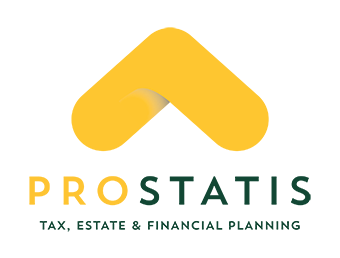Now is the time to explore the possibilities.
Grandparents Day provides a reminder of the bond between grandparents and grandchildren and the importance of family legacies.
A family legacy can have multiple aspects. It can include much more than heirlooms and
appreciated assets. It may also include guidance, even instructions, about what to do with the gifts that are given. It should reflect the values of the giver.
What are your legacy assets? Financially speaking, a legacy asset is something that will outlast you, something capable of producing income or wealth for your descendants. A legacy asset might be a company you have built. It might be a trust that you create. It might be a form of intellectual property or a portfolio of real property. A legacy asset should never be sold – not so long as it generates revenue that could benefit your heirs.
To help these financial legacy assets endure, you need an appropriate legal structure. It could be a trust structure; it could be an LLC or corporate structure. You want a structure that allows for reasonable management of the legacy assets in the future – not just five years from now, but 50 or 75 years from now.1
Think far ahead for a moment. Imagine that forty years from now, you have 12 heirs to the
company you founded, the valuable intellectual property you created, or the real estate
holdings you amassed. Would you want all 12 of your heirs to manage these assets together?
Probably not. Some of those heirs may not be old enough to handle such responsibility. Others may be reluctant or ill-prepared to take on the role. At some point, your grandkids may decide that only one of them should oversee your legacy assets. They may even ask a trust officer or an investment professional to take on that responsibility. This can be a good thing because sometimes the beneficiaries of legacy assets are not necessarily the best candidates to manage them.
Values are also crucial legacy assets. Early on, you can communicate the importance of honesty, humility, responsibility, compassion, and self-discipline to your grandkids. These virtues can help young adults do the right things in life and guide their financial decisions. Your estate plan can articulate and reinforce these values, and perhaps, link your grandchildren’s inheritance to the expression of these qualities.
You may also make gifts with a grandchild’s education or retirement in mind. For example, you could fully fund a Roth IRA for a grandchild who has earned income or help an adult grandchild fund their Roth 401(k) or Roth IRA with a small outright gift. Custodial accounts represent another option: a grandparent (or parent) can control assets in a 529 plan or UTMA account until the grandchild reaches legal age.3
Make sure to address the basics. Is your will up to date with regard to your grandchildren?
How about the beneficiary designations on your IRA or your life insurance policy? Creating a trust may be a smart move. In fact, you can set up a living irrevocable trust fund for your grandkids, which can actually begin distributing assets to them while you are alive. While you no longer own assets you place into an irrevocable trust (which is overseen by a trustee), you may be shielded from estate, gift, and even income taxes related to those assets with appropriate planning.4
This Grandparents Day, think about the legacy you are planning to leave. Your thoughtful
actions and guidance could help your grandchildren enter adulthood with good values and a
promising financial start.
Michael Canet may be reached at (410) 863-1040
Securities offered through TCM Securities, Inc., Member FINRA/SIPC. Prostatis Group LLC is a registered investment adviser. This material was
prepared by MarketingPro, Inc., and does not necessarily represent the views of the presenting party, nor their affiliates. All information is
believed to be from reliable sources; however we make no representation as to its completeness or accuracy. Please note – investing involves
risk, and past performance is no guarantee of future results. The publisher is not engaged in rendering legal, accounting or other professional
services. If assistance is needed, the reader is advised to engage the services of a competent professional. This information should not be
construed as investment, tax or legal advice and may not be relied on for the purpose of avoiding any Federal tax penalty. This is neither a
solicitation nor recommendation to purchase or sell any investment or insurance product or service, and should not be relied upon as such. All
indices are unmanaged and are not illustrative of any particular investment.
Citations.
1 – forbes.com/sites/danielscott1/2017/09/04/three-common-goals-every-legacy-plan-should-have/ [9/4/17]
2 – wealthmanagement.com/high-net-worth/key-considerations-preparing-family-legacy-plan [3/27/17]
3 – marketwatch.com/story/whats-next-after-planning-your-retirement-help-your-children-and-grandchildren-plan-for-theirs-2017-10-17 [10/17/17]
4 – investopedia.com/articles/pf/12/set-up-a-trust-fund.asp [1/23/18]





























